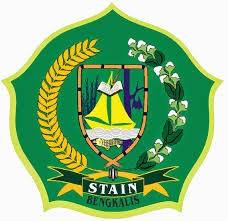Strategi Pembelajaran dan Evaluasi dalam Pengembangan Kemampuan Menulis Siswa SMA
DOI:
https://doi.org/10.56633/kaisa.v5i1.1056Keywords:
learning, evaluation, writing skills , senior high school , teaching strategiesAbstract
This study emphasizes the significance of learning and evaluation processes in enhancing students' writing skills at the senior high school level. Learning is viewed as an interactive system between teachers and students, supported by continuous practice and exercises. Techniques such as idea development and mind mapping are employed by teachers to facilitate effective planning of writing tasks. Various assessment methods, including group assignments, individual tasks, and formative evaluations, are utilized to comprehensively measure students' writing abilities. Conducted at SMA N 5 Tarakan through interviews, the research reveals teachers' strategies in overcoming students' difficulties and monitoring their progress. The findings suggest that the application of idea development techniques and diverse evaluation approaches can significantly improve students' writing skills.
References
Aulia, R. N., Rahmawati, R., & Permana, D. (2020). Peranan penting evaluasi pembelajaran Bahasa di sekolah dasar. Jurnal BELAINDIKA (Pembelajaran Dan Inovasi Pendidikan), 2(1), 1-9.
Amassang, D. (2018). Kemampuan Mengembangkan Gagasan dalam Karangan Eksposisi Siswa Kelas X MIA 1 MAN 2 Palu. Jurnal Bahasa dan Sastra, 3(4).
Anggraini, T. R. (2017). Menulis dan mencatat dengan menggunakan metode peta pikiran (Mind Mapping). Jurnal Bindo Sastra, 1(1), 52-59.
Fatzuarni, M. (2022). Artikel Pentingnya Evaluasi Dalam Proses Pembelajaran.
Hamp-Lyons, L. (2003). Assessing second language writing: Interrelationships among theory, research, and practice. In P. Matsuda (Ed.), Second language writing in the composition classroom: A critical sourcebook (pp. 59–78). Bedford/St. Martin’s.
Isnaini, H., & Herliani, Y. (2020). Penyuluhan pembelajaran menulis puisi berbasis karakter di SMK profita kota bandung tahun ajaran 2019-2020. Community Development Journal: Jurnal Pengabdian Masyarakat, 1(2), 78-83.
Mahirah, B. (2017). Evaluasi belajar peserta didik (siswa). Idaarah: Jurnal Manajemen Pendidikan, 1(2).
Mundziroh, S., Sumarwati, S., & Saddhono, K. (2013). Peningkatan kemampuan menulis cerita dengan menggunakan metode picture and picture pada siswa sekolah dasar. Basastra, 2(1).
Nasution, A. F. (2023). Metode Penelitian Kualitatif. Harva Creative
Nurpadilah, S., & Kartini, C. (2018). Kemampuan menulis teks negosiasi dengan menggunakan metode picture and picture di SMK. Parole: Jurnal Pendidikan Bahasa dan Sastra Indonesia, 1(4), 489-496.
Romdona, S., Junista, S. S., & Gunawan, A. (2025). TEKNIK PENGUMPULAN DATA: OBSERVASI, WAWANCARA DAN KUESIONER. JISOSEPOL: Jurnal Ilmu Sosial Ekonomi dan Politik, 3(1), 39-47.
Rosyid, F. (2022). Metodologi Penelitian Kualitatif dan Kuantitatif. Nadi Pustaka Offset
Sudrajat, R. T., & Wuryani, W. (2019). Model pembelajaran kalimat menggunakan pendekatan kooperatif berbasis karakter di IKIP Siliwangi-Bandung. Semantik, 8(1), 29-36.
Supini, P., Sudrajat, R. T., & Isnaini, H. (2021). Pembelajaran menulis teks drama dengan menggunakan metode picture and picture. Parole: Jurnal Pendidikan Bahasa dan Sastra Indonesia, 4(1), 15-22.
Susanti, T., Nasution, I. K., Kurniati, Ulfa, M., Sofiani, I. K., Nuriyati, T., Robiah. (2024). Implementation of Differentiation Learning with Scaffolding Strategy to Success Summative Assessments at MTsN 01 Bengkalis. International Journal of Innovative Research in Multidisciplinary Education. 3(4), 504-512.
Wasonowati, R. R. T., Redjeki, T., & Ariani, S. R. D. (2014). Penerapan Model Problem Based Learning (PBL) Pada Pembelajaran Hukum -Hukum Dasar Kimia Ditinjau Dari Aktivitas Dan Hasil Belajar Siswa Kelas X Ipa SMA Negeri 2 Surakarta Tahun Pelajaran 2013/2014. Jurnal Pendidikan Kimia, 3(3), 66–75. https://jurnal.fkip.uns.ac.id/index.php/kimia/article/view/4244
Downloads
Published
Issue
Section
License
Copyright (c) 2025 Aviva Octavia -, Asih Riyanti , Dhita Nur Fajri, Rahmatang, Indra Muharam

This work is licensed under a Creative Commons Attribution-NonCommercial-ShareAlike 4.0 International License.

Authors who publish with Kaisa: Jurnal Pendidikan dan Pembelajaran agree to the following terms:
- Authors retain copyright and grant the journal right of first publication with the work simultaneously licensed under a Creative Commons Attribution-NonCommercial-ShareAlike 4.0 International License (CC BY-NC-SA 4.0) that allows others to share the work with an acknowledgment of the work's authorship and initial publication in this journal.
- Authors are able to enter into separate, additional contractual arrangements for the non-exclusive distribution of the journal's published version of the work (e.g., post it to an institutional repository or publish it in a book), with an acknowledgment of its initial publication in this journal.
- Authors are permitted and encouraged to post their work online (e.g., in institutional repositories or on their website) prior to and during the submission process, as it can lead to productive exchanges, as well as earlier and greater citation of published work (See The Effect of Open Access).









